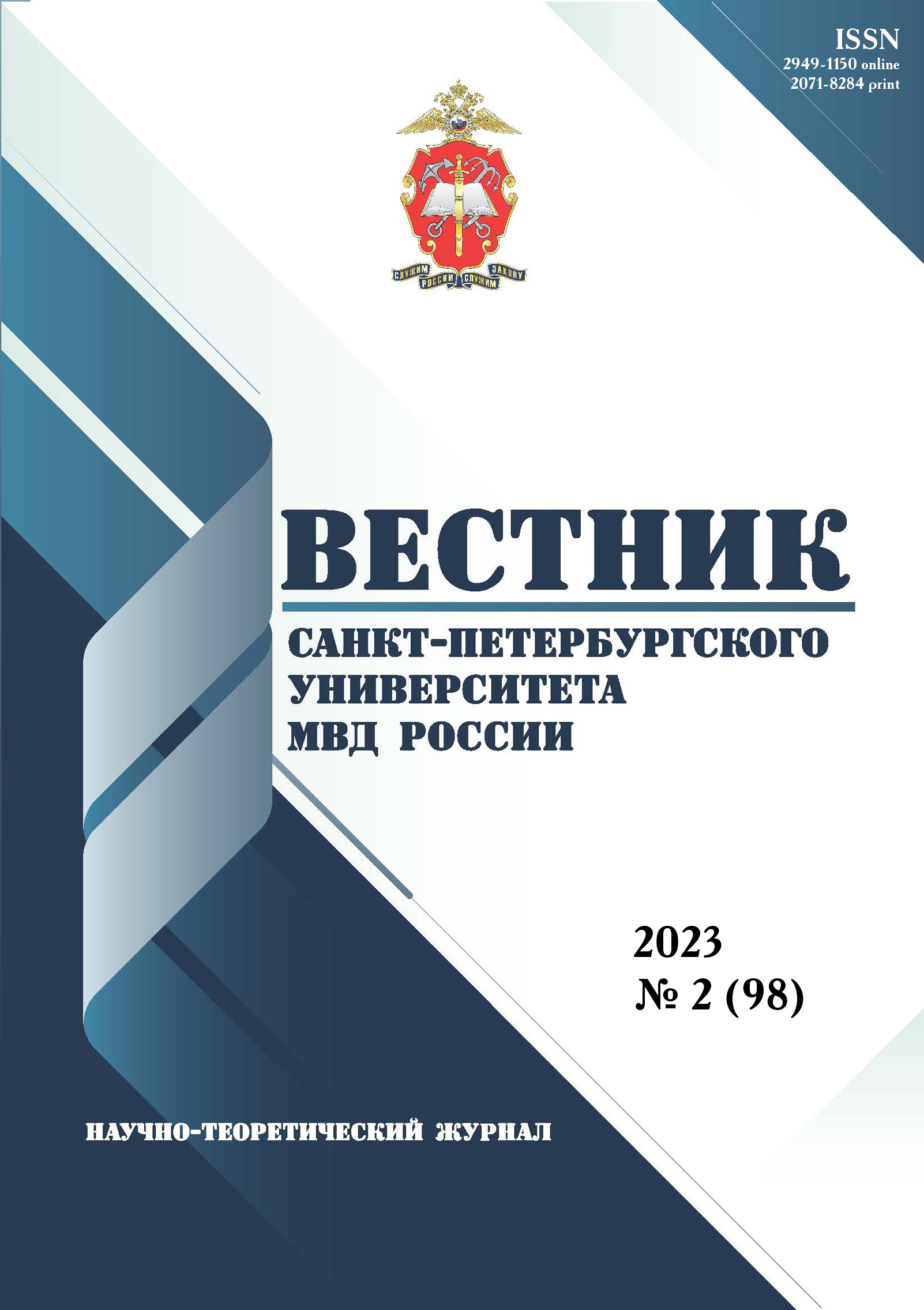from 01.01.1994 until now
Barnaul, Barkaul, Russian Federation
Moskva, Moscow, Russian Federation
The article analyses the practice of giving training sessions of future teachers on the basis of digital technologies, the importance and effectiveness of which have increased significantly in the period of digitalisation of society. The main purpose of the research is to study the peculiarities of training students in higher education programmes for teaching activities on the basis of the potential of their self-independent work. The authors justify the need to use digital technologies in the educational process, contributing to a deeper immersion of post-graduates in the features of teaching activities using the creative potential of students, an independent active search. The article analyses various types of digital technologies, including students’ self-independent work with interactive learning material, written assignments aimed at developing practical skills. Methods. A special emphasis in the article is made on the use of simulators for acquiring skills in conducting various types of classes. In analysing the existing practice of conducting training sessions with postgraduates, theoretical (analysis of pedagogical literature, comparative analysis) and empirical (conversations, observations, evaluation and self-assessment of post-graduates and teachers) methods were used. Conclusion. The conclusion states that in the context of digitalisation of society, quality training of future teachers will require revision of available technologies, types of training sessions organisation based on active involvement of post-graduates in the process of organisation and conducting training sessions with the use of digital technologies.
post-graduates, educational process, digital technologies, digital transformation of education, e-learning complex, e-course, self-independent work
1. Grebenyuk T. B. Podgotovka buduschego pedagoga k cifrovizacii obrazovaniya kak pedagogicheskaya problema // Nauchno-metodicheskiy elektronnyy zhurnal «Kaliningradskiy vestnik obrazovaniya». - 2020. - № 2 (6), iyul'. - S. 20-27.
2. Uvarov A. Yu. Obrazovanie v mire cifrovyh tehnologiy: na puti k cifrovoy transformacii. - Moskva: Izd. dom GUVShE, 2018. - 168 s.
3. Vaganova O. I., Gladkov A. V., Konovalova E. Yu. Cifrovye tehnologii v obrazovatel'nom prostranstve // Baltiyskiy gumanitarnyy zhurnal. - 2020. - T. 9. - № 2 (31). - S. 146-148.
4. Shmachilina-Cibenko S. V., Kotlyarova T. S. Organizaciya samostoyatel'noy raboty obuchayuschihsya v usloviyah ispol'zovaniya distancionnyh obrazovatel'nyh tehnologiy // Psihopedagogika v pravoohranitel'nyh organah. - 2023. - T. 28. - № 1 (92). - S. 73-82. https://doi.org/10.24412/1999- 6241-2023-192-73-82.
5. Schegolihin E. N. Usloviya samorealizacii lichnosti v mul'timediynoy obrazovatel'noy srede vuza // Psihopedagogika v pravoohranitel'nyh organah. - 2021. - T. 26. - № 1 (84). - S. 61-65. DOI: 10. 24412/1999-6241-2021-1-84-61-65.
6. Salynskaya T. V., Tolkunova M. S. Sovremennye informacionnye tehnologii v sisteme professional'nogo obrazovaniya // Sovremennoe pedagogicheskoe obrazovanie. - 2022. - № 10. - S. 132-135.
7. Veretennikova A. E., Scheglova E. M., Korobko O. S. Cifrovye aborigeny i cifrovye immigranty v obrazovatel'nom processe vysshey shkoly // Psihopedagogika v pravoohranitel'nyh organah. - 2022. - T. 27. - № 2 (89). - S. 217-223. https://doi.org/10.24412/1999-6241-2022-289-217-223.
8. Vavilova T. E., Eremina E. I. Primenenie distancionnyh form obucheniya pri izuchenii inostrannogo yazyka / Pedagogika i psihologiya v deyatel'nosti pravoohranitel'nyh organov: integraciya teorii i praktiki : materialy nauchno-prakticheskoy konferencii. Sankt-Peterburg. 30 oktyabrya 2020 goda / pod obsch. red. A. S. Dushkina, N. F. Geyzhan. - Sankt-Peterburg: Sankt-Peterburgskiy universitet MVD Rossii, 2020. - S. 73-79.
9. Sergeeva E. N. Organizaciya samostoyatel'noy raboty inostrannyh slushateley v usloviyah distancionnogo i smeshannogo obucheniya // Vestnik Ufimskogo yuridicheskogo instituta MVD Rossii. - 2021. - № 1 (91). - S. 181-188.
10. Solov'ev K. S., Ivanova O. M. Rol' vneauditornoy samostoyatel'noy raboty v formirovanii professional'nyh kompetenciy // Pedagogika vysshey shkoly. - 2017. - № 2 (08). - S. 119-122.
11. Sviridova A. I., Sultanbekov T. I. Innovacionnyy potencial obrazovatel'noy sredy: suschnost', soderzhanie // Sovremennoe pedagogicheskoe obrazovanie. - 2022. - № 6. - S. 170-175.
12. Hohlova N. I., Rustamova L. R. Problema podgotovki nauchno-pedagogicheskih kadrov v vysshey shkole // Vestnik Bryanskogo gosudarstvennogo universiteta. - 2017. - № 4 (34). - S. 335-342.
13. Maksimova Yu. S. Transformaciya paradigmy roley «pedagog-obuchayuschiysya» v sovremennom obrazovatel'nom processe // Sovremennoe pedagogicheskoe obrazovanie. - 2021. - № 10. - S. 165-169.
14. Batyushkin M. V., Kislicin I. A. Element «Lekciya» v SDO MOODLE kak al'ternativa klassicheskoy videolekcii / Pedagogika i psihologiya v deyatel'nosti pravoohranitel'nyh organov: integraciya teorii i praktiki : materialy nauchno-prakticheskoy konferencii. Sankt-Peterburg. 30 oktyabrya 2020 goda / pod obsch. red A. S. Dushkina, N. F. Geyzhan. - Sankt-Peterburg: Sankt-Peterburgskiy universitet MVD Rossii, 2020. - S. 48-51.
15. Dudyrev F. F., Maksimenkova O. V. Simulyatory i trenazhery v professional'nom obrazovanii: pedagogicheskie i tehnologicheskie aspekty // Voprosy obrazovaniya. - 2020. - № 3. - S. 255-276.














